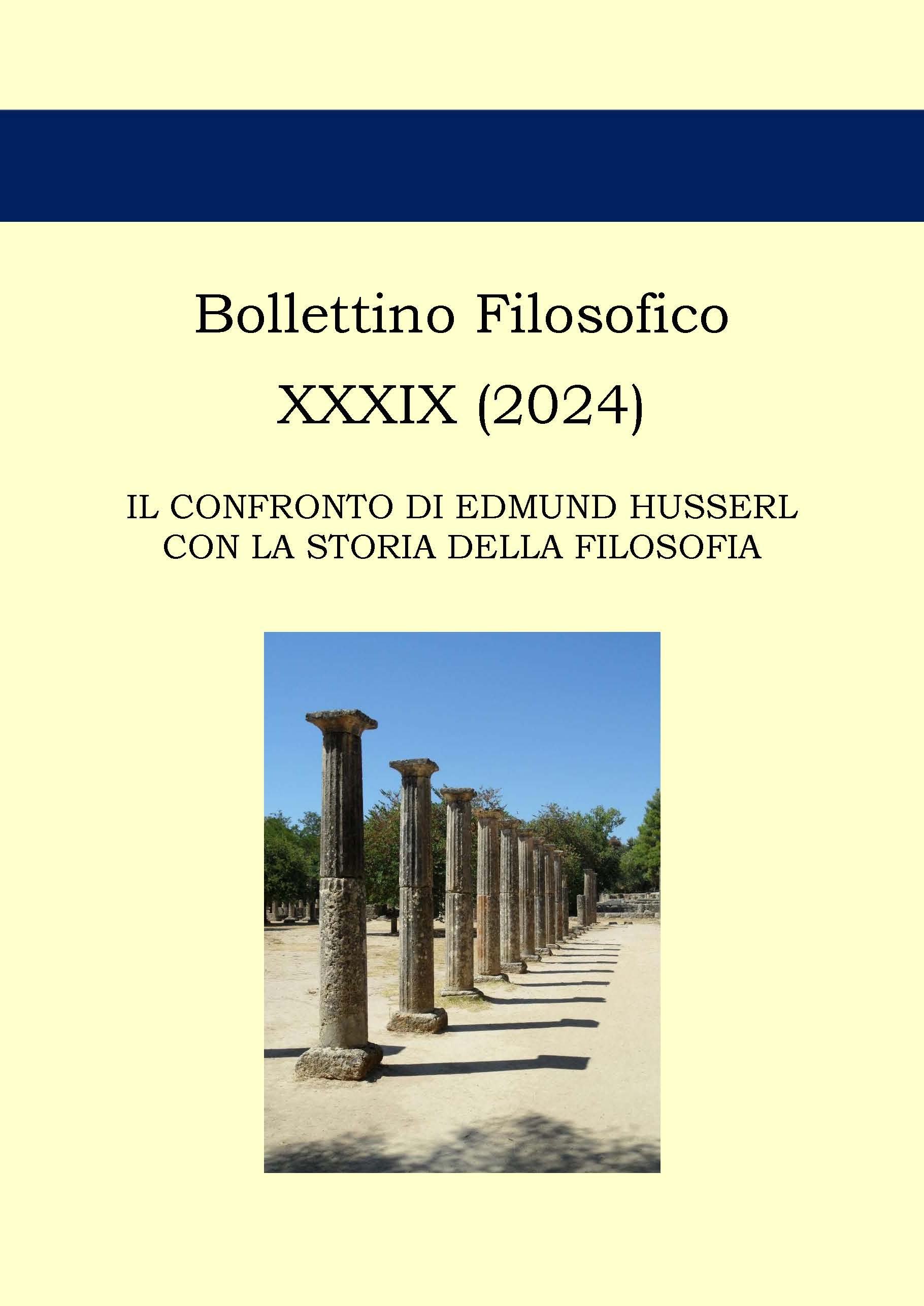Augustinian Traces in Husserl’s Writings
DOI:
https://doi.org/10.6093/1593-7178/11395Abstract
The aim of my paper is to examine the presence of certain philosophical arguments of Augustine of Hippo in Husserlian phenomenology. This investigation is made possible by the citation of Augustine’s famous saying, “noli foras te ire, in interiore homine habitat veritas”, in three of Husserl's works concerning the transcendental reduction, the theme of time, and ethical-religious questions. In addition to these three fundamental aspects of phenomenological analysis, one must also consider philosophical anthropology and the relationship between the Divine and the human being. There are numerous traces of Augustine in Husserl’s analyses: some are explicitly referenced, while others can be uncovered through a comparative study of the two thinkers’ works. The connection with Augustine is therefore particularly significant in relation to theories of knowledge, anthropology, and Husserl’s unique “metaphysics”.
Keywords: Ethical-Religious Questions, Interiority, Time, Transcendental Reduction, Truth
Downloads
Downloads
Published
How to Cite
Issue
Section
License
The author retains the copyright of his work whilst granting anyone the possibility “to reproduce, distribute, publicly communicate, publicly exhibit, display, perform and recite the work”, provided that the author and the title of the journal are cited correctly. When submitting the text for publication the author is furthermore required to declare that the contents and the structure of the work are original and that it does not by any means compromise the rights of third parties nor the obligations connected to the safeguard of the moral and economic rights of other authors or other right holders, both for texts, images, photographs, tables, as well as for other parts which compose the contribution. The author furthermore declares that he/she is conscious of the sanctions prescribed by the penal code and by the Italian Criminal and Special Laws for false documents and the use false documents, and that therefore Bollettino Filosofico is not liable to responsibilities of any nature, civil, administrative or penal, and that the author agrees to indemnify and hold Bollettino Filosofico harmless from all requests and claims by third parties.

